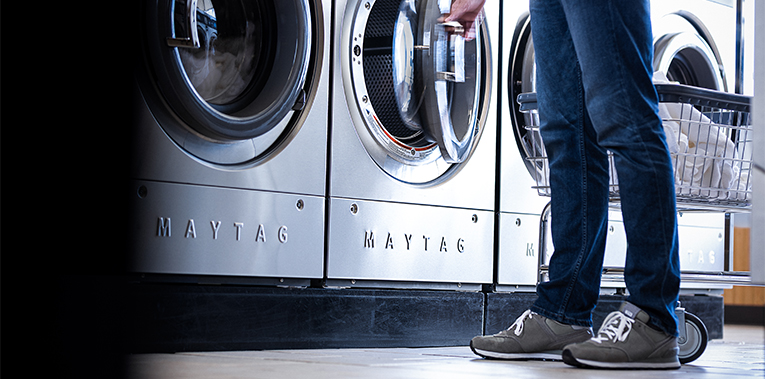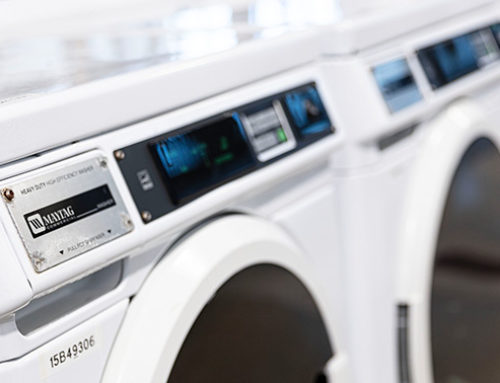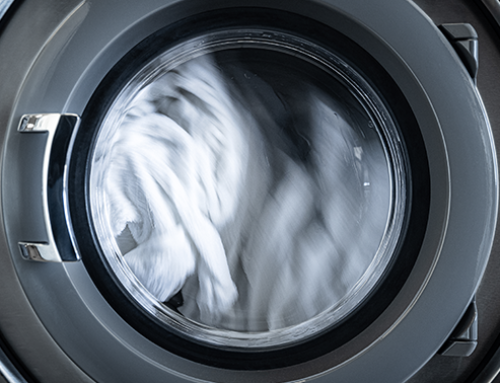
The consistency of running a laundromat is a large part of what makes it an attractive business. But looking beyond the regular customers, routine maintenance and steady cash flow, successful store owners know it’s important not to confuse “consistent” with “complacent.”
Your store may be pulling in a consistent gross revenue each week for years, but that’s only half the story. Without regular investments of time and money, the profitability of your store and value of your business will slowly erode. What are the roadblocks that are keeping you from investing more in your store?
In our e-book Reequipping for Success, we asked several laundry experts about overcoming common roadblocks—like a short lease—that get in the way of equipment replacement. In this excerpt, commercial real estate developer John Holborow points out a few ways that your lease and your landlord may be more flexible than you think.
Recent Posts
MORE FLEXIBILITY THAN YOU THINK
The earning potential of a laundromat is directly proportional to the amount of time left on a lease, making your lease a major factor impacting any business decision you make.
It’s understandable to be hesitant to invest in new equipment if there’s uncertainty around the future of your lease. But before you assume your landlord holds all the cards or the terms of your lease are set in stone, it’s worth opening up a conversation.
“Every lease is different. The fact of the matter is that so much of it is negotiable. Don’t count something out that you didn’t think of five or 10 years ago when you negotiated your original lease,” says Holborow.
Holborow encourages tenants to be transparent about what their business needs.

John Holborow, President, Evo Development
“The security of knowing I’m going to have a tenant that’s going to stay there for five or seven more years, that’s valuable. A 3,000 or 5,000 square foot space that’s vacant is going to be a much bigger drag on a landlord’s bottom line than offering rent abatement or an improvement allowance.”
He says a lease should be a tool for spelling out the terms of the agreement between tenant and landlord, not a threat one holds over the other.
“I want you to be successful. In return, l promise that I’ll keep the shopping center maintained, I’ll keep the lights on in the parking lot and keep it full of tenants. That’s my obligation to you. We’re there together.”
UNDERSTANDING YOUR LEASE
Even with the most supportive landlord, a lease is still a negotiation, and not a do-it-yourself endeavor. Whether it’s the CLA, your equipment distributor, a local business organization or a real estate lawyer, seek guidance and advice from industry professionals.
Even with the most supportive landlord, a lease is still a negotiation, and not a do-it-yourself endeavor. Whether it’s the CLA, your equipment distributor, a local business organization or a real estate lawyer, seek guidance and advice from industry professionals.
When you review your lease with them, be sure to consider the following:
- Do you occupy space in a shopping center with a large anchor tenant? Make sure your lease allows you to request a reduction in rent proportionate to any business lost if that business leaves.
- Do you operate 24 hours a day? Make sure your ability to do so is outlined in the lease.
- If your landlord is paying the water and wastewater utility bill, not you, request that they provide proof of payment. If they don’t pay the bill on time, it’s your business that suffers.
- Make sure the lease terms include clear deadlines and make sure any communication with your landlord is backed up in writing.
- How are rent increases structured? Pre-negotiated increases let you plan ahead, but many landlords prefer the option of redetermining rent based on fair market value when the lease is renewed.
PARTNERING ON IMPROVEMENTS
“It’s a partnership. As a landlord, I’m relying on the tenants. The tenants are relying on me. It’s only as good as we all are together,” says Holborow.
Partnering with your landlord can help you mitigate the expense of store improvements. Some possible avenues to discuss:
Rent Abatement – The simplest and most common form of assistance landlords can offer is rent abatement or a temporary pause or reduction in rent. This is especially useful if you know you will have to shut down for a few weeks to make renovations and install new equipment.
Tenant Improvement Allowance – Although less common, landlords may offer a tenant improvement allowance for improvements to the space that will be left behind after you leave, such as new flooring or plumbing. Usually this is paid as a reimbursement for expenses, so make sure you are clear on whether or not your landlord will reimburse you for ‘soft’ costs like construction management fees.
Up-Front Assistance – Landlords like Holborow are willing to provide tenants the cash they need to upgrade their business and let them amortize that cost across the lease period. But you have to be able to show them how their business would benefit.
“If you can say, ‘Here’s my plan, here’s how much it’ll cost, I’ve talked to the equipment financing people. It’ll increase my sales by this much and bring more people to your shopping center,’ which benefits everybody in the long run, we can negotiate.”
REEQUIPPING FOR SUCCESS
What are the roadblocks that are keeping you from investing more in your store? Maybe you’re unsure about the ROI, or don’t think you can find affordable financing. Download Reequipping for Success for more tips on how to clear those roadblocks.





